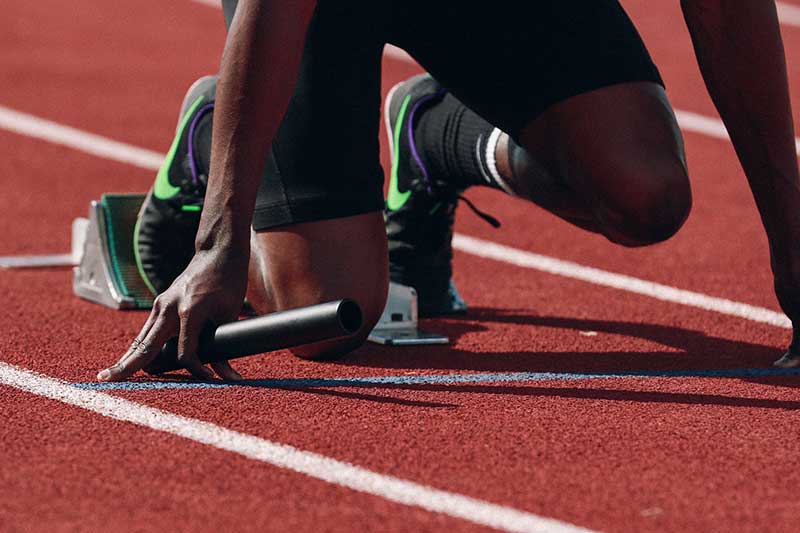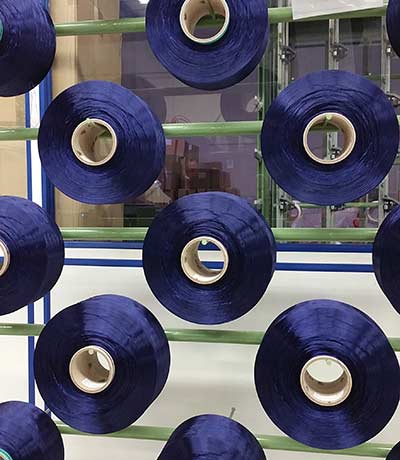
Recycled PET
Essentially from the recycling of the mineral water bottle, more generally from food packaging, rPET, commonly known as recycled polyester in the textile field, has today become one of the major raw materials of the recycling industry.
The use of rPET in the textile industry makes it possible to obtain continuous or cut fibers by hot spinning.
Finished textile products woven or knitted with these same fibers are of a quality comparable to those obtained with fibers spun from virgin materials.
PET (polyethylene terephthalate) represents 70% of the world’s textile fibers production. This material has a slow aging when exposed to UV rays and weathering. It can be recycled several times.
Technologies that finish
Production techniques, which are in constant evolution are improving the material and thus expand its spectrum of use. These new recycling technologies require relatively little energy.
Our experience and our multidisciplinary trade allow us to prepare these polymers, and thus offer products with low carbon footprint.
PET can be recycled from post-industrial and post-consumer raw materials (five bottles of soda are enough to make fibers for an extra-large t-shirt).
A process adapted to rPET
Ain Fibres, specialized in meltspinning extrusion, is developing an optimized process and a real R & D project in the framework of an INNOV’R Project to spin recycled polyester from highly degraded materials made from 50% household waste and 50% of ocean and sea waste.

This rPET is obtained by melting the polymer resulting from the recycling and by spinning it in continuous multi filaments into a new technical and functionalized polyester fiber.
Our innovative method and technology for manufacturing 100% rPET yarns allow:
- using a mechanically recycled PET
- clear transparency comparable to crystal allows the integration of pigments in the mass of the fiber (avoids all dyeing operations in conventional bath, bleaching …)
- the addition of the additives trapped in the mass of the material during the spinning operation allows the functionalization of the fibers, avoid the direct contact on the skin of these different additives during the use of textiles
- the manufacture of a range of yarns with titers, number of filaments, section of the filament shape according to the many fields of application for textiles and clothing
- the finished product obtained is of high quality

Improved quality
Our rPET yarns are manufactured in continuous multi filaments, dyed and additivated in mass of the material to improve considerably the quality of the final textile piece.
This quality also reduces significantly the release of fibers and toxics polluting the environment during washing operations or during the wearing of clothing, since there are no release of short fibers.
An eco-design for a sustainable circular economy
Recycled polyester garments aim to be reused without degradation of quality.
The rPET garment will eventually have the potential to enter a closed-loop system.
An eco-responsible material
The higher the share of rPET in the industry, the greater the impact on protection and respect for the environment.
Increasing the share of rPET leads to a reduction in the consumption of new PET.
This is a real challenge, a real and very serious ethic to impose on all industries using PET material. This solution is however simple in appearance, in fact it requires optimizations throughout the production chain, starting with the sorting of waste.
… the ultimate goal is to imperatively and rapidly reduce the impact on the climate by transforming our household waste into deposit of raw materials for the textile industry.
In parallel, an awareness with a deep change of our mentalities to avoid the overconsumption which is the major element to reach in the end a real eco-responsible behavior.
Ain Fibers is proud to support you in this sustainable approach : Contact us or consult also our offers of technical threads for textiles and technical threads for the environment.
